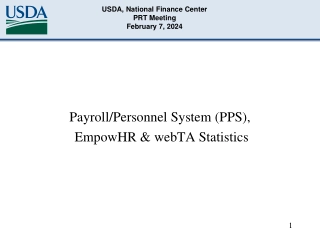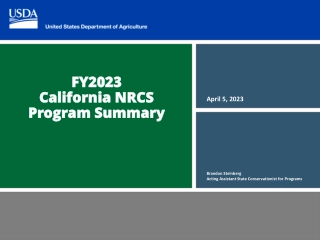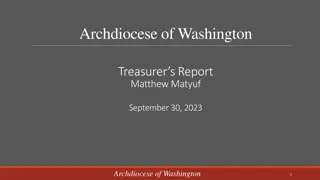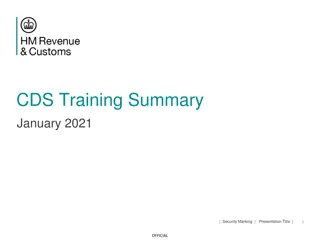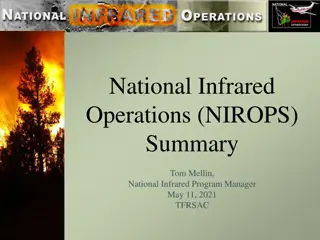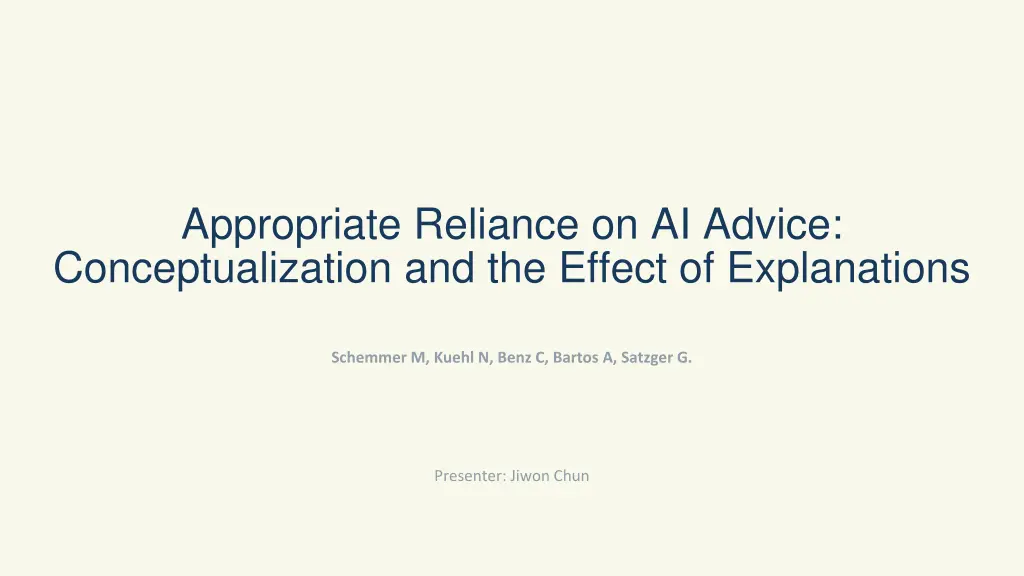
Understanding Appropriate Reliance on AI Advice: Conceptualization & Effects
Explore the concept of appropriate reliance on AI advice, focusing on the need for explanations, systematic and random errors, and a measurement concept for determining reliance levels. This research delves into the crucial interplay between human decision-makers and AI advisors to optimize decision-making processes.
Download Presentation

Please find below an Image/Link to download the presentation.
The content on the website is provided AS IS for your information and personal use only. It may not be sold, licensed, or shared on other websites without obtaining consent from the author. If you encounter any issues during the download, it is possible that the publisher has removed the file from their server.
You are allowed to download the files provided on this website for personal or commercial use, subject to the condition that they are used lawfully. All files are the property of their respective owners.
The content on the website is provided AS IS for your information and personal use only. It may not be sold, licensed, or shared on other websites without obtaining consent from the author.
E N D
Presentation Transcript
Appropriate Reliance on AI Advice: Conceptualization and the Effect of Explanations Schemmer M, Kuehl N, Benz C, Bartos A, Satzger G. Presenter: Jiwon Chun
Introduction Background nowadays AI advisors are becoming frequent in research and practice e.g.) cancer screening, loan decisions Problem past research: reliance, trust, utilization, compliance, acceptance of AI advise but, maximising AI reliance doesn t fully exploit the potential of state-of-the-art human-AI decision making increasing usage of imperfect AI advisors increasing alignment of the objectives of human decision-makers and AI advisors increasing potential for complementary team performance
Related Work Appropriate reliance in human advice: judge-advisor system judge: the person responsible for making the final decision advisor: the source of the advice focus on advice acceptance Appropriate reliance in automation and robotics Appropriate reliance in human-AI decision-making doesn t provide a unified measurement that measures the degree of appropriateness Explainable AI and appropriate reliance researchers proposed to use explanations of AI as a means for appropriate reliance Lack: a clear definition of appropriate reliance, a standard way to measure it, a clear understanding of when and why AI advisor explanations affect it
Conceptualization of AR-1 Reliance and Appropriateness reliance defined as a behavior, not a feeling or attitude, but an actual action trust, perceived risk, self-confidence appropriateness: depends on different types of AI errors systematic error: if humans can detect patterns to spot bad advice, case-by-case judgment with AI collaboration is needed random error: humans should always rely on the AI s advice when the AI performs better on average, and never when the AI performs worse on average
Conceptualization of AR-2 Towards a Measurement Concept Appropriateness of Reliance follow the approach of the judge-advisor system CSR: after an initial correct decision, ignore incorrect AI advice Over-reliance: follow incorrect AI advice, change an initial correct decision CAIR: after an initial wrong decision, accept correct AI advice Under-reliance: reject correct AI advice and stick to a wrong decision
Conceptualization of AR-3 Definition of Appropriate Reliance achieved when the human-AI team performance (complementary team performance) surpasses the performance of either the human or AI alone : the individual human performance : the individual AI performance
Theory Development and Hypotheses develop hypotheses on the effect of explanations on Appropriateness of Reliance (AoR) H1a: Providing explanations of the AI advisor influences the relative self-reliance (???). H1b: Providing explanations of the AI advisor increases the relative AI reliance (????). H2: Providing explanations of the AI advisors increases the change in self-confidence. H3a: An increased change in human self-confidence increases the relative self-reliance (RSR). H3b: An increased change in human self-confidence increases the relative AI reliance (RAIR). H4: Providing explanations of the AI advisor increases trust in the AI advisor. H5a: Trust decreases the relative self-reliance (RSR). H5b: Trust increases the relative AI reliance (RAIR). mediating variables
Experimental Design Hotel review classification: human determine if it is deceptive or genuine 400 deceptive and 400 genuine dataset by crowd-workers, with ground truth labels AI advisor: based on a Support Vector Machine with 86% accuracy Explanations: LIME(Local Interpretable Model-agnostic Explanations) for feature importance numerically represents the influence assigned by the AI model to specific words highlights key words, showing their impact (positive or negative) on decisions Between-subject: AI advice without feature importance, feature importance conditions participants initially decide if a review is genuine or deceptive receive AI advice (with/without explanations) and can revise or keep their decision they rate their self-confidence in their judgment
Results Descriptive analysis Appropriateness of reliance & appropriate reliance human-AI team performance is not significantly different from the human accuracy it means don t reach CTP and therefore appropriate reliance is not displayed Structural equation model
Conclusion Providing explanations increases RAIR, helping participants appropriately accept AI advice. Changes in self-confidence partially mediate the effect of explanations, contributing to the increase in RAIR. Trust boosts RAIR, but excessive trust can lead to accepting incorrect AI advice, reducing RSR. Explanations didn t increase RSR, suggesting that they have little impact on the ability to reject incorrect advice. Appropriate reliance on AI advice represents the next step toward effective human-AI collaboration, moving beyond research focused solely on AI adoption and acceptance.


